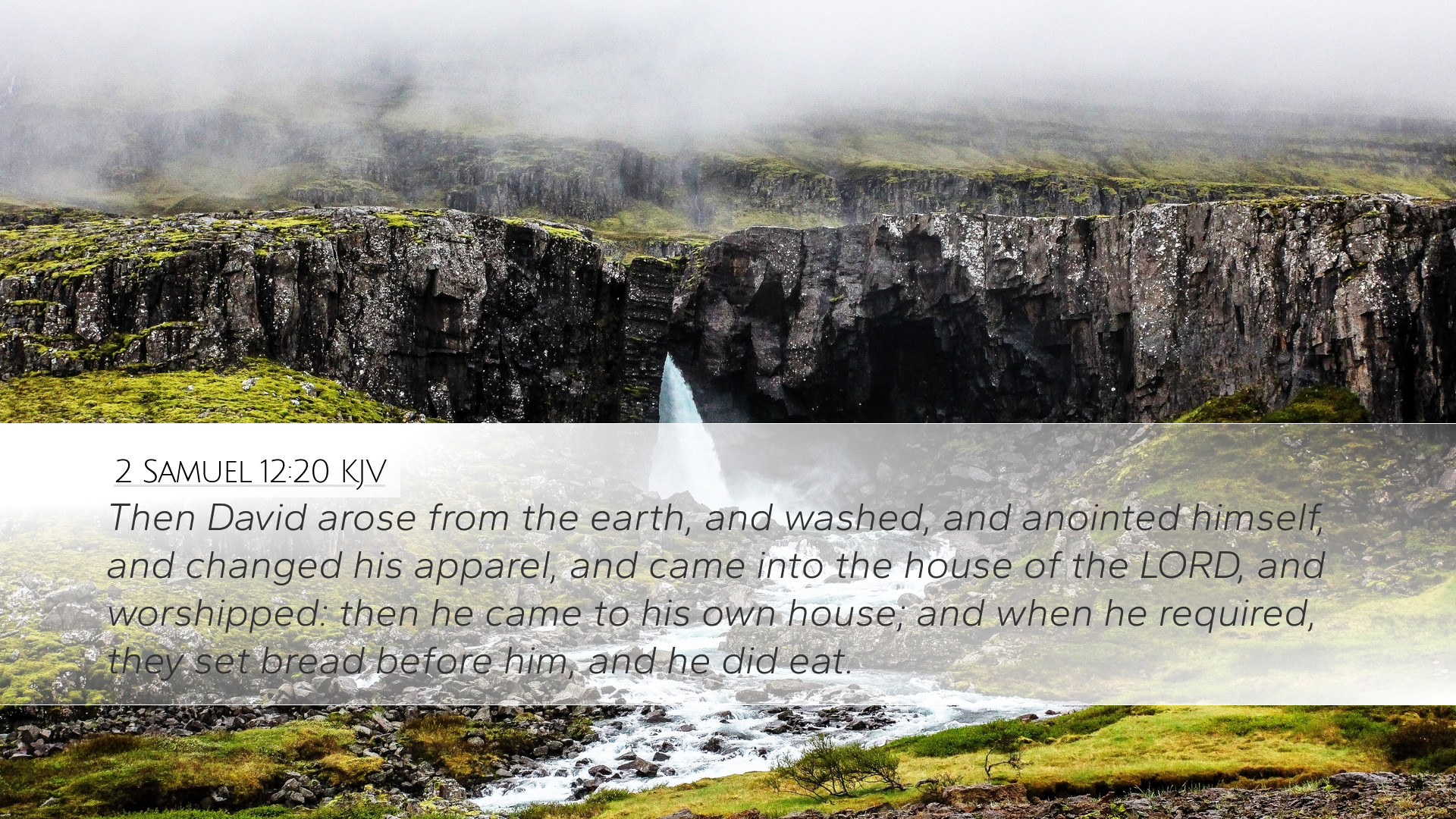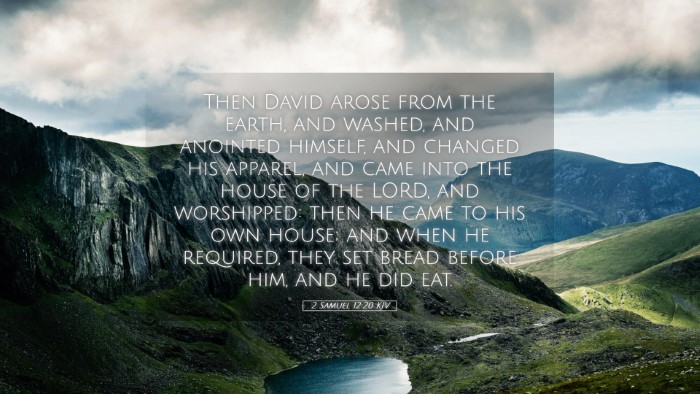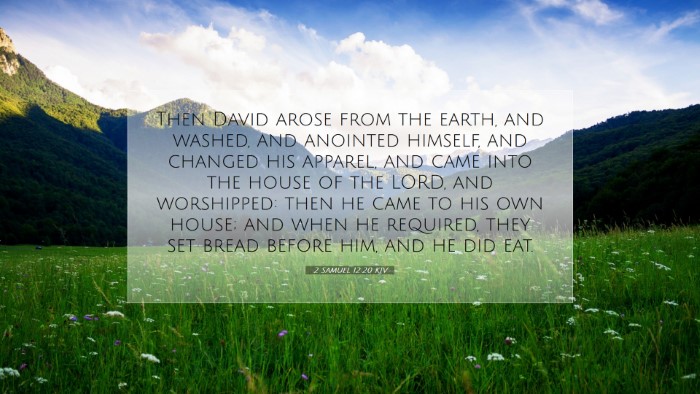Commentary on 2 Samuel 12:20
Verse: "So David arose from the earth, and washed, and anointed himself, and changed his apparel, and came into the house of the Lord, and worshipped: then he came to his own house; and when he required, they set bread before him, and he did eat."
This verse captures a pivotal moment in King David's life, following the death of his child as a consequence of his sin. The narrative holds profound lessons regarding grief, worship, and the nature of repentance. Commentators such as Matthew Henry, Albert Barnes, and Adam Clarke offer valuable insights that can enrich our understanding of this significant text.
Context of 2 Samuel 12
To fully appreciate 2 Samuel 12:20, it is essential to understand the preceding events. David had sinned grievously by committing adultery with Bathsheba and orchestrating the death of her husband, Uriah (2 Samuel 11). The prophet Nathan confronted David about his sin, leading to David's acknowledgment and repentance (2 Samuel 12:1-13). However, Nathan also prophesied the death of the child born from this union as a divine judgment (2 Samuel 12:14).
David's Response to Grief
David's Actions After the Child's Death:
-
Arose from the earth: David's initial posture was one of deep mourning, lying on the ground, pleading with God for the child's life. When the mourning period concluded with the child's death, he arose, symbolizing a transition from despair to acceptance.
-
Washed and anointed: This act signifies a return to physical and spiritual cleanliness. Matthew Henry highlights that David's washing represents not only physical restoration but a spiritual renewal as he prepares to meet God in worship.
-
Changed his apparel: The change of clothes signifies a change of heart and circumstance. David moved from the garments of mourning to those suitable for worship, emphasizing the dignity that should accompany the worship of God (Barnes).
-
Came into the house of the Lord: David chose to worship despite his grief, showing an incredible depth of faith and understanding of God's sovereignty. His act of worship is a model for believers on how to approach God amidst pain (Clarke).
-
Ate bread: After worship, David returned home to eat. This symbolizes a restoration of normalcy, and the meeting of basic needs, reminding believers of God’s provision even in times of trial.
Theological Reflections
The verse illustrates several crucial theological themes worthy of reflection:
-
God’s Sovereignty: David acknowledges God's judgment, reflecting an understanding of divine authority. As Henry states, "The Lord hath spoken, He must be obeyed."
-
Worship in Suffering: David's worship amidst sorrow provides a profound example for believers. It emphasizes that worship is not merely a response to joy but a vital orientation of the heart, even in dire circumstances (Barnes).
-
Grace in Grief: David's actions signify a transition from despair to reliance on God's grace. Adam Clarke suggests that, through David's worship, we see the power of grace to restore and strengthen in the wake of loss.
-
Repentance and Restoration: David’s willingness to move on after recognizing his sin and its consequences indicates a deep understanding of repentance as a path to restoration with God.
Application for Today’s Believers
For pastors, students, theologians, and Bible scholars, 2 Samuel 12:20 is rich with application:
-
Embrace Worship: In times of grief or trial, believers are encouraged to continue worshipping God, understanding that worship is a declaration of faith despite circumstances.
-
Model of Response: David's example serves as a model for proper responses to God after sin. Believers are called to acknowledge their sin, seek forgiveness, and actively partake in worship.
-
Integrating Emotion and Faith: The passage teaches that it’s permissible to hold both grief and faith simultaneously. This duality does not undermine faith but rather demonstrates its robustness.
-
Preparing for Worship: Like David, Christians today are reminded to prepare themselves both spiritually and physically for worship, highlighting the importance of coming into God’s presence with reverence.
-
Recognizing God’s Provision: Even during suffering, believers must remain attentive to the ways God provides for their spiritual and physical needs, much like God did for David post-grief.
Conclusion
In conclusion, 2 Samuel 12:20 serves as a powerful reminder of the complexity of human emotion in the light of God’s sovereignty and grace. David's movements—from mourning to an act of worship—illustrate an essential truth: worship can and should continue regardless of life's circumstances. Through the insights of Matthew Henry, Albert Barnes, and Adam Clarke, we learn that our faith sustains us through grief, leads us to worship, and ultimately encourages us toward reconciliation and restoration with a loving God.


